I need to confess something here. I write fiction under a different name than the name I use on my nonfiction. I’ve been doing it for so long that I’ve forgotten what the original logic was, but I’m sure it made oodles of sense at the time. Admittedly, it has its advantages. It makes displaying my books easier, since I can I can separate them by name and give myself two shelves of work, and I can review anthologies that include works by my horror writing brother (not named Scooter) and say bad things about the book without looking like an even bigger ass for saying bad things about a book with my brother in it. Where it gets complicated is conventions. Do you sign your real name, or the byline on the story? I mean, if you’re asking me to sign, you know who I am, since my real name is on my pass. And if you ask how they want it signed, they assume I’m going to personalize it when all I really want to know is which name do you want me to use. And when they want one of your nonfiction titles and that anthology – well, you can just rock me to sleep tonight because I’ll still be stressing over that one.
0 Comments
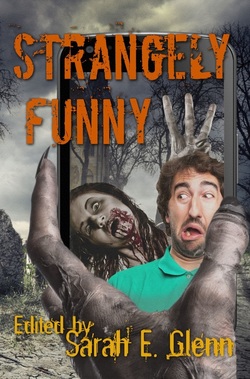 M&H: What would you like people to know about you? DF: I like to travel. I’ve visited all but two U.S. states (N. Dakota & Alaska), Puerto Rico, and 20 foreign countries including China. I’m currently retired, living in Connecticut and enjoying my second career as an author. I’ve been married for 48 years to my wonderful wife Tere. We have three daughters, and seven grandchildren ranging in age from 7 months to 20 years. M&H: When did you begin writing? DF: It seems like I’ve always been writing something, but I didn’t start writing professionally until I retired. I found it impossible to switch from the highly technical writing I did during my day job to writing fiction in my off time. M&H: How did you get the idea for your story in Strangely Funny III? DF: By getting old. Every year I get junk mail from AARP inviting me to join. In it, they always expound on the joys of being a senior. The reality is, along with the good things that come with age, so do the aches and pains of an aging body. I thought it might be fun to poke a little fun at both of them. M&H: Is there a genre you haven't written in, but would like to? DF: Epic Fantasy. I wrote one short story, "Sang Ku’s Dilemma", in this genre. Sang Ku is an assassin living in a world of sword and sorcery. I’ve always thought of going back and exploring Sang’s life and his world. M&H: Who are your current favorite authors? What do you enjoy about them? DF: Steven King, of course, because he’s a great story teller. I have a problem with some of his endings, but I can give him that. Currently I really like the work of James A. Moore, both his horror and epic fantasy. His Seven Forges series is outstanding. Others include Elizabeth Massie, Jack Ketchum, Rick Hautala, and a host of others. In the past few years I’ve pretty much stopped reading the big names and have started reading the work of writers I’ve met through conventions and my own writing. I’ve found that there’s a whole list of great writers out there that most people have never heard of. M&H: What are you working on next? DF: That’s complicated. After a year of publishing nothing but short stories and one novella, I have three novels coming out in a two month period. Abandoned is coming out in June from Books and Boos Press, Reunion is coming out in late June or early July from Grinning Skull Press, and Wolf’s Tale should be out in July from NECON ebooks. Of the three, Abandoned contains the most humor, but you need a nasty sense of humor to appreciate it. My current work in progress is another novella tentatively titled Gypsey. I had intended it to be another novel, but it's moving along way too fast. I think it will finish up at around 40,000 words. M&H: What is your favorite writing snack food/drink? DF: I really don’t eat while I’m writing, but I LOVE pizza. I can eat that any time. My favorite is pepperoni and black olives. As for a drink, Green Mountain hazelnut decaf coffee, or seltzer, preferably lime. Oh, yeah, and Mexican. I love Mexican. Strangely Funny III is now available on Kindle. Print version to follow.  I am pleased to announce that Strangely Funny III is now on Kindle. It presents nineteen stories from talented authors, and I would like to introduce you to one of them. Nathan Cromwell is the author of "The Tortured Teen." Rather than being interviewed by us, Marla, one of the characters from “The Tortured Teen”, expressed her desire to talk with the author about the story. Marla: You don’t like me very much, do you? Cromwell: You’re a bit of a pain, but I’m sure you’ll grow out of it. Marla: You have me already dead in the very first paragraph! Cromwell: . . . Marla: (After a half-hour awkward silence) What’s up with the picture? Cromwell: That was a gift from my niece, Mikaela. It’s a statuette of me with a peacock on my head. Marla: Wh-- Cromwell: I don’t know. Marla: Okay. So, how did you come up with the story? Cromwell: I was sitting in a coffee shop trying to think of something interesting to write for this anthology. I had started watching a documentary on string theory the night before, and I had recently read Oscar Wilde’s The Ghost of Canterville, so I decided to mix an old-fashioned ghost with modern physics. 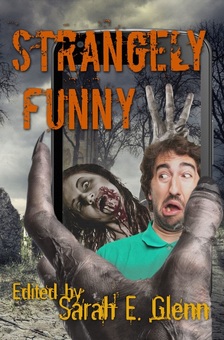 M: Do your stories just come to you? C: Sometimes I do write straight through, but mostly I jot down ideas until my muse takes a bathroom break. Then I’ll start arranging my notes into clumps and decide the best plan of attack. Once I’ve got the architecture, I start fleshing out and filling in gaps, and either throwing out or saving things that don’t fit. Marla: Some authors talk to their characters. Do you? Cromwell: I never have conversations with my characters. Marla: Speaking of your characters, how did you come to put me in Atlanta instead of somewhere more goth-friendly, like New Orleans? Cromwell: I used to live there, and I left about the time they were tearing down homes in the shabbier part to prepare for the Olympics. Since I wanted a ghost haunting a brand-new house, that came to mind. M: A lot of authors, myself included—did you know I write heart-rending poetry?—get inspired to write by reading a story and saying to themselves: “I can do better than that.” Do you feel proud that you will inspire so many future writers? C: I’m not some hack! I put a lot of effort and thought into my stories. M: You know, after all that work, it’s unbearably sad that no one will read or even remember this story fifty years after you’re dead. C: (As a pleased smile blossoms on Marla’s lips) That’s not—maybe this—you never kno—oh, shut up! M: And if by some miracle people are still reading it, you’ll be dead but I, the dead girl, will live on in your story. Isn’t that neat? C: (Inaudible). M: Thank you, Mr. Cromwell. I enjoyed our interview. More than you know. Nathan Cromwell is a living, breathing, swearing teleprompter for the human race, and he does some of his best work on public transport. A military brat, he is from no one place. He did hover in Indiana long enough to earn a BA in English which he has never used for any job ever unless you count this. He has worked in the retail, security, and fitness industries and has acquired all the concomitant bitterness they offer. That hard-won fruit he passes on to you in his stories.
Many of his stories are online, and you can find links to them at nathancromwell.wordpress.com. |
Welcome!
Mystery and Horror, LLC, is an indie press interested in what the name suggests. Contact us at: [email protected]
Archives
October 2023
Categories
All
|
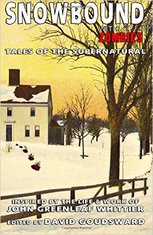
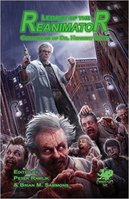
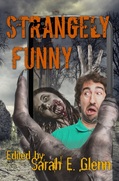
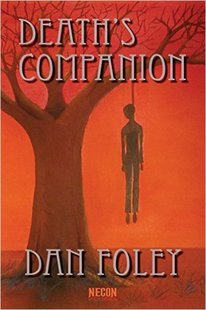
 RSS Feed
RSS Feed